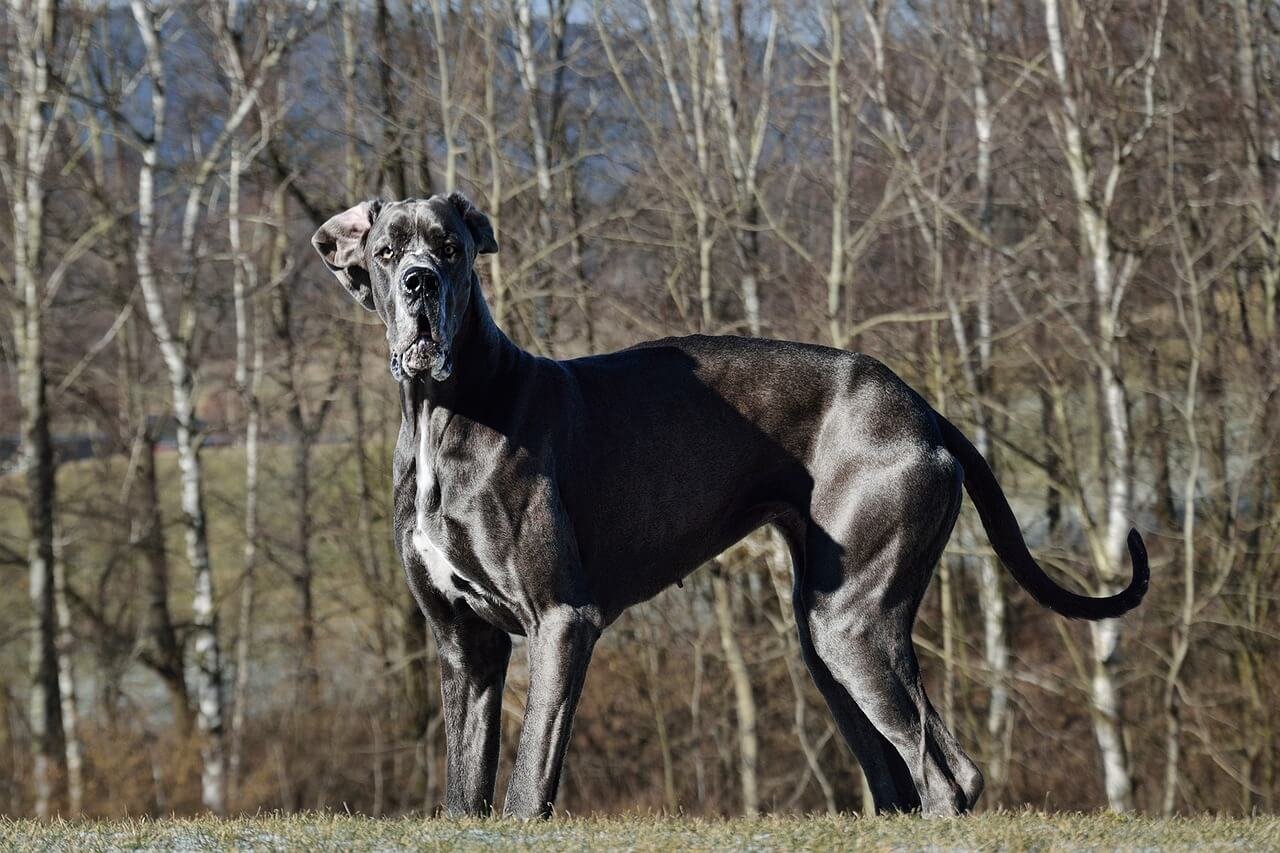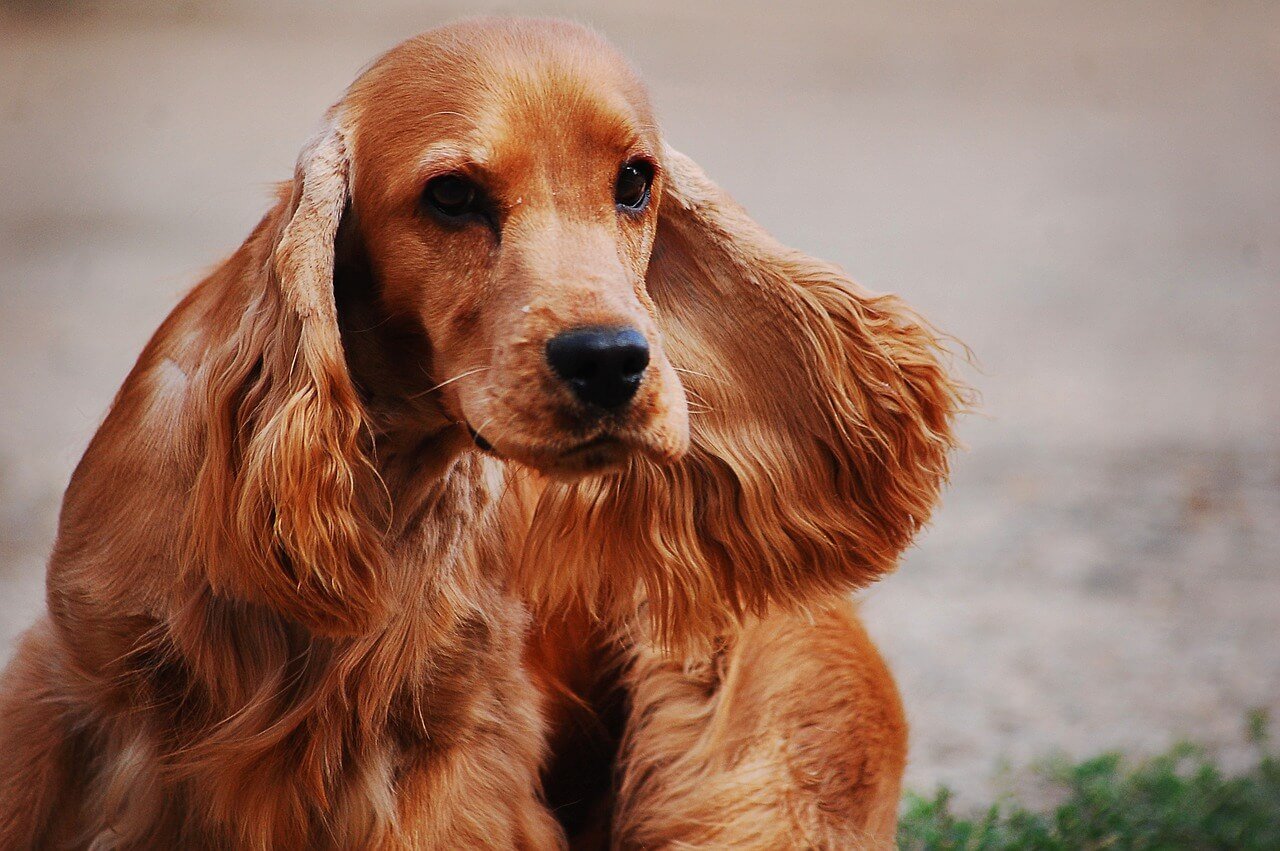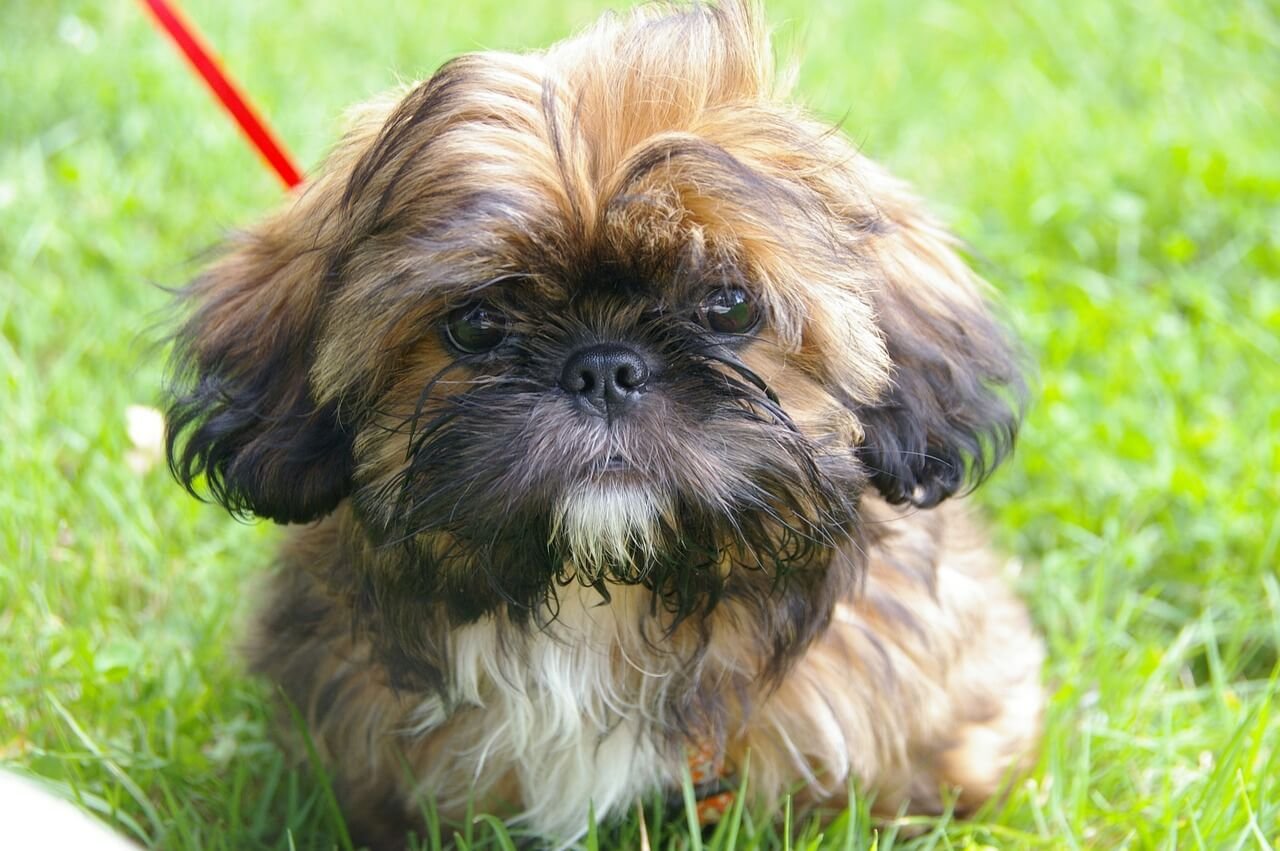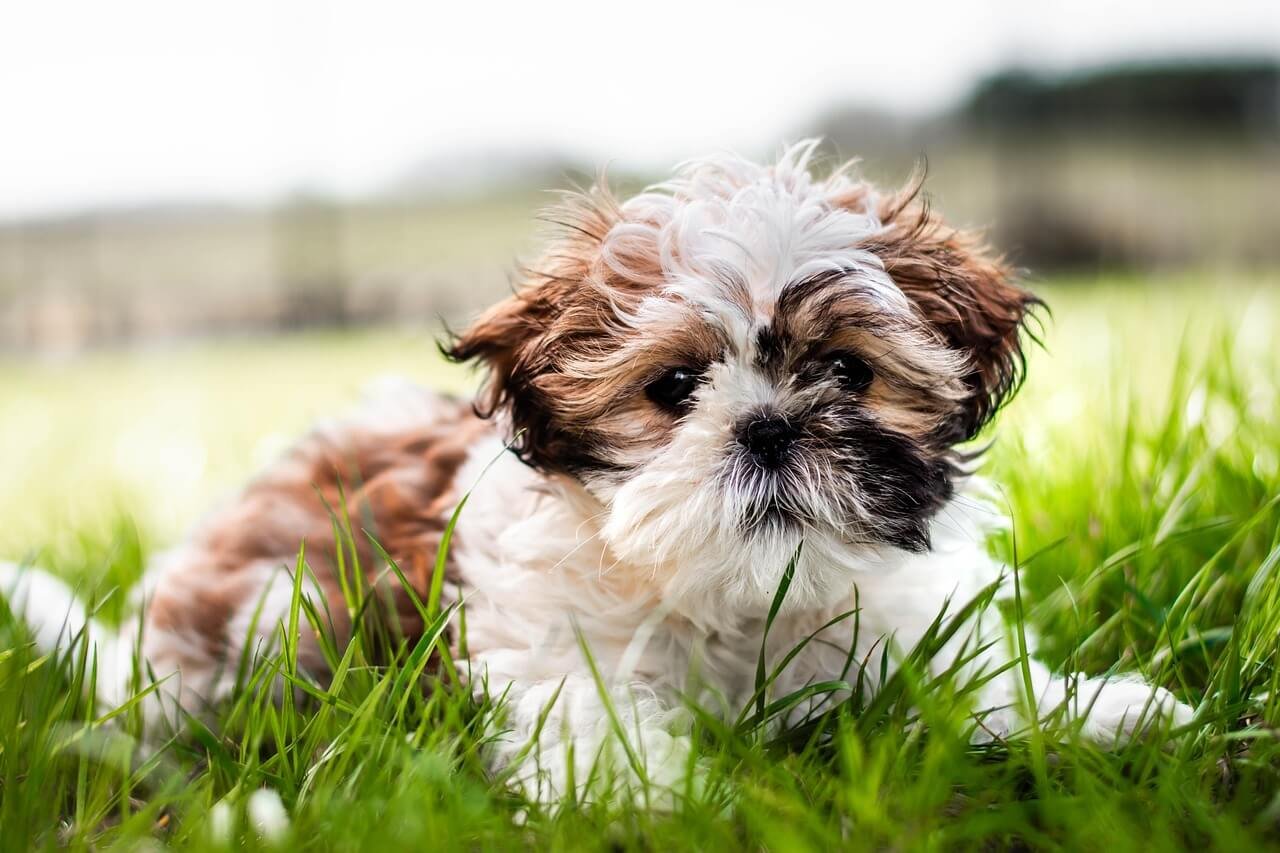How Much Does a Great Dane Weigh? Understanding the Size of This Gentle Giant
When it comes to large dog breeds, the Great Dane stands out as one of the most impressive. Known for their towering height and regal demeanor, these dogs are often referred to as the “Apollo of Dogs.” But how much does a Great Dane weigh? Their weight is not just a number—it’s a key factor in understanding their needs, health, and overall well-being. In this blog post, we’ll explore everything you need to know about the weight of Great Danes, from puppyhood to adulthood. Whether you’re a proud Great Dane owner or simply curious about this majestic breed, we’ve got you covered.
Average Weight Range of Great Danes
The weight of a Great Dane can vary significantly depending on factors such as gender, genetics, and overall health. However, there are general guidelines that help determine what is considered a healthy weight for this breed. Below are the average weight ranges for male and female Great Danes:
Male Great Danes: Typically weigh between 140 and 175 pounds (63 to 79 kg).
Female Great Danes: Usually weigh between 110 and 140 pounds (50 to 63 kg).
Puppy Stage (3-6 months): Puppies weigh around 30 to 60 pounds (14 to 27 kg) during this rapid growth phase.
Adolescent Stage (7-12 months): They can reach 70 to 100 pounds (32 to 45 kg), depending on their diet and activity levels.
Full Maturity (18-24 months): By this age, Great Danes should have reached their full adult weight.
Understanding these ranges can help owners monitor their dog’s growth and ensure they stay within a healthy weight bracket. Rapid weight gain or loss could indicate underlying health issues that require attention.
Factors That Influence a Great Dane’s Weight
Several factors contribute to the weight of a Great Dane, and being aware of them can help owners make informed decisions about their dog’s care. Here are some key influences on a Great Dane’s weight:
Genetics: A Great Dane’s lineage plays a significant role in determining their size and weight potential.
Diet: High-quality nutrition tailored to their life stage supports healthy growth and prevents obesity.
Exercise Levels: Regular physical activity helps maintain muscle tone and prevents excessive weight gain.
Health Conditions: Issues like hypothyroidism or joint problems can impact their weight and mobility.
Spaying/Neutering: Altered dogs may experience changes in metabolism, which can affect their weight over time.
By addressing these factors, owners can ensure their Great Dane maintains a healthy weight throughout their life. Proper management is crucial to avoid complications associated with being underweight or overweight.
Check this guide 👉How Long Does a Great Dane Live? Best 7 Health Tips!
Check this guide 👉How Tall Is a Great Dane? Best 7 Expert Tips!
Check this guide 👉Best Dog Food for Great Danes: 7 Expert tips!
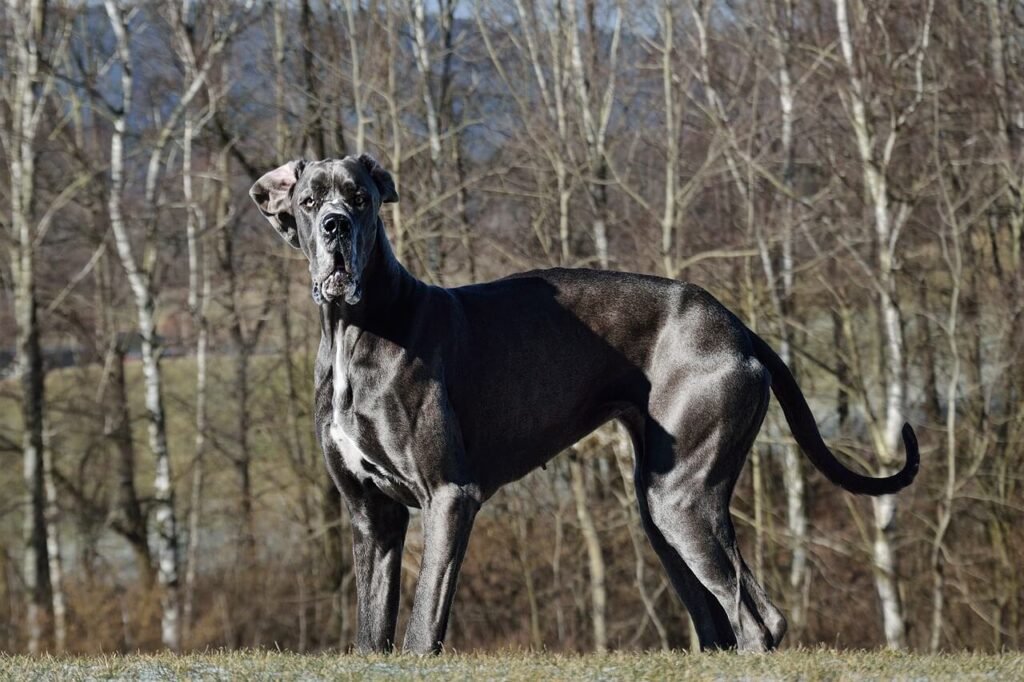
Weight Management Tips | Health Benefits |
|---|---|
Feed high-quality, breed-specific food. | Supports balanced growth and reduces obesity risk. |
Monitor portion sizes carefully. | Prevents overfeeding and maintains ideal weight. |
Provide daily exercise (walks, play). | Strengthens muscles and improves cardiovascular health. |
Schedule regular vet check-ups. | Early detection of weight-related issues ensures prompt treatment. |
Avoid table scraps and unhealthy treats. | Reduces the risk of digestive problems and unnecessary weight gain. |
Signs Your Great Dane Is Overweight or Underweight
Maintaining a healthy weight is vital for a Great Dane’s longevity and quality of life. Recognizing signs of unhealthy weight fluctuations can help you address issues early. Here are some indicators to watch for:
Overweight Signs: Excess fat deposits along the ribs, difficulty moving, and labored breathing during exercise.
Underweight Signs: Visible ribs, spine, or hip bones without palpable muscle mass underneath.
Behavioral Changes: Lethargy or reluctance to engage in physical activities may signal an unhealthy weight.
Coat Condition: Poor coat quality, dryness, or excessive shedding can be linked to nutritional deficiencies.
Joint Problems: Both overweight and underweight conditions can exacerbate joint stress and lead to mobility issues.
If you notice any of these signs, consult your veterinarian to create a plan for adjusting your Great Dane’s diet or exercise routine. Early intervention can prevent long-term complications.
Tips for Managing a Great Dane’s Weight Effectively
Managing a Great Dane’s weight requires dedication and consistency. These gentle giants thrive when their owners prioritize their health and well-being. Here are some practical tips to keep your Great Dane at a healthy weight:
Establish a Feeding Schedule: Stick to two meals per day rather than free-feeding to regulate calorie intake.
Choose the Right Food: Opt for formulas designed for large breeds, rich in protein and essential nutrients.
Limit Treats: Use low-calorie treats sparingly and focus on rewarding good behavior with affection instead.
Engage in Playtime: Incorporate interactive games like fetch or tug-of-war to burn excess energy.
Track Progress: Regularly weigh your Great Dane and adjust their diet or exercise routine as needed.
With these strategies in place, you can help your Great Dane maintain a healthy weight while fostering a strong bond through shared activities.
Common Health Issues Related to Weight in Great Danes
Maintaining a healthy weight is crucial for preventing health problems in Great Danes. These dogs are prone to certain conditions that can be exacerbated by being overweight or underweight. Here are some common health issues linked to improper weight management:
Bloat (Gastric Torsion): A life-threatening condition more common in large breeds, often triggered by overeating or rapid weight gain.
Joint Problems: Excess weight puts strain on their joints, increasing the risk of arthritis or hip dysplasia.
Heart Disease: Obesity can lead to cardiovascular issues, which are already a concern for this breed.
Muscle Atrophy: Underweight Great Danes may experience muscle loss, leading to weakness and mobility challenges.
Metabolic Disorders: Poor weight management can disrupt their metabolism, causing issues like hypothyroidism.
By keeping your Great Dane at a healthy weight, you can significantly reduce the risk of these serious health concerns and ensure a longer, happier life for your furry friend.
Exercise Recommendations for Great Danes
Exercise plays a vital role in maintaining a Great Dane’s weight and overall well-being. However, due to their size and unique needs, not all activities are suitable for them. Here are some exercise recommendations tailored to Great Danes:
Leisurely Walks: Aim for two 20-30 minute walks daily to keep them active without overexerting their joints.
Playtime Indoors: Engage them with gentle games like fetch or tug-of-war in a safe, spacious area.
Avoid High-Impact Activities: Running or jumping should be minimized to prevent joint injuries, especially in puppies.
Mental Stimulation: Puzzle toys or obedience training can provide mental exercise while burning energy.
Swimming: If accessible, swimming is an excellent low-impact activity that strengthens muscles without stressing joints.
Balancing physical activity with rest is key to keeping your Great Dane fit and healthy. Always tailor their exercise routine to their age, weight, and energy levels.
Signs Your Great Dane Is Growing Properly
Monitoring your Great Dane’s growth ensures they’re developing healthily and within the expected weight range. Here are signs that indicate your Great Dane is growing properly:
Proportional Body Frame: Their body should appear balanced, with no excessive fat or visible bones.
Steady Weight Gain: Puppies should gain weight gradually, not too quickly or slowly, during their first year.
Healthy Appetite: A consistent appetite indicates they’re receiving adequate nutrition for growth.
Active Behavior: Playfulness and curiosity are signs of a happy, healthy puppy.
Shiny Coat: A glossy, soft coat reflects good nutrition and overall health.
If your Great Dane exhibits these signs, it’s likely they’re on track for healthy development. Regular vet check-ups can further confirm their progress and address any concerns early on.
Frequently Asked Questions About Great Dane Weight
What is the ideal weight for a male Great Dane?
Male Great Danes typically weigh between 140 and 175 pounds (63 to 79 kg).
How much should a female Great Dane weigh?
Female Great Danes usually weigh between 110 and 140 pounds (50 to 63 kg).
At what age do Great Danes reach their full weight?
Great Danes generally reach their full adult weight by 18 to 24 months.
Can Great Danes become overweight easily?
Yes, due to their large size, even small increases in caloric intake can lead to significant weight gain.
How can I tell if my Great Dane is too thin?
Visible ribs, spine, or hip bones without muscle coverage are signs your Great Dane may be underweight.
In Conclusion: Nurturing a Healthy Great Dane
Understanding how much a Great Dane weighs—and what contributes to their weight—is essential for ensuring their happiness and health. From monitoring their growth stages to implementing effective weight management strategies, every step counts toward providing the best care possible. Remember, a healthy Great Dane isn’t just about numbers; it’s about creating a lifestyle that supports their well-being. With love, attention, and proper guidance, your Great Dane will thrive as the magnificent companion they were meant to be.
How Much Is a Cocker Spaniel? Best 7 Expert Tips! Discover the true cost of owning a Cocker Spaniel, from initial expenses to expert advice on budgeting and care. Perfect for future owners!
How Much Should a Shih Tzu Weigh? Best 7 Expert Tips! Discover the ideal weight range, factors influencing it, and expert advice to keep your Shih Tzu healthy and happy.
How Much Does a Shih Tzu Cost? Best 7 Expert Tips! Discover the true cost of owning a Shih Tzu, from initial expenses to hidden fees. Perfect for future owners!
Are Shih Tzus Hypoallergenic? Best 7 Health Tips! Discover if Shih Tzus are hypoallergenic and learn expert advice to manage allergies with this beloved breed. Perfect for allergy sufferers!

